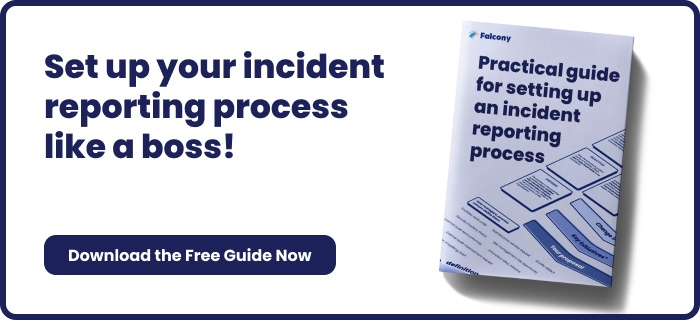8 Typical Unsafe Acts in Government and Public Sector
Safety within the workplace is a key concern across all sectors, but when it comes to the government and public sector, the potential consequences of unsafe practices can have far-reaching implications. Employees within these sectors are often responsible for upholding policies, maintaining public services, and safeguarding the welfare of citizens. However, despite a strong emphasis on regulations and safety protocols, unsafe acts still occur.
In this blog, we will explore eight typical unsafe acts that are commonly observed in government and public sector workplaces. Recognising these acts is the first step towards mitigating risks and ensuring the safety of both employees and the public.
Lack of Personal Protective Equipment (PPE) Usage
In many public sector roles, such as those in emergency services, healthcare, and construction, PPE is essential. Unfortunately, failure to use or improperly using PPE remains one of the most common unsafe acts. Whether it's not wearing helmets on construction sites, ignoring gloves in medical environments, or neglecting high-visibility vests during streetwork, such omissions can lead to serious injuries or even fatalities. It's crucial that all employees understand the importance of PPE and adhere strictly to guidelines.
Failure to Follow Standard Operating Procedures (SOPs)
Government and public sector organisations often have clearly outlined SOPs designed to ensure that employees carry out their duties safely and effectively. However, non-compliance with these procedures is a common unsafe act. Skipping steps to save time or not adhering to safety instructions can lead to errors, accidents, or even system failures, especially in areas like healthcare, transportation, or law enforcement.
Neglecting to Report Hazards or Unsafe Conditions
A culture of open communication regarding safety concerns is vital for maintaining a safe working environment. Yet, in some cases, employees fail to report hazards or unsafe conditions. Whether due to fear of reprisal or simply overlooking the issue, neglecting to inform supervisors about potential safety risks can prevent timely intervention. This often leads to an accumulation of risks that could have otherwise been avoided.
Improper Handling of Hazardous Materials
Government and public sector workers in various departments, such as waste management, public health, and research, are often required to handle hazardous materials. Improper handling, such as failure to follow disposal procedures or mishandling chemicals, can result in dangerous situations. It is essential that employees receive proper training in handling, storage, and disposal of hazardous materials, and that they adhere to safety regulations.
Overworking and Fatigue
While overworking is a common issue across many industries, its impact is particularly significant in the public sector. Employees in essential services such as law enforcement, healthcare, and public transport often face long hours and high-stress situations, leading to fatigue. Fatigue can impair judgment, slow reaction times, and increase the likelihood of mistakes or accidents. Encouraging reasonable work hours and adequate rest is crucial to minimising this risk.
Inadequate Training and Competence
In any sector, inadequate training can lead to unsafe acts, but in the public sector, it can have even more serious consequences. Employees who are not adequately trained in the use of equipment, the execution of procedures, or handling emergencies are at a higher risk of making mistakes. Continuous professional development and ongoing training are essential for ensuring staff are competent and prepared to deal with challenges safely.
Lack of Emergency Preparedness
Whether in local government, healthcare, or emergency services, a lack of preparedness for emergencies is an unsafe act that can be catastrophic. Public sector organisations are often the first responders in times of crisis, and a failure to have effective emergency procedures in place can lead to confusion, delays, and preventable harm. Regular drills and clear communication systems are essential to ensuring staff are ready to act swiftly and correctly in an emergency.
Ignoring Health and Safety Regulations
The importance of health and safety regulations cannot be overstated. However, in some government and public sector environments, these regulations are either overlooked or not fully enforced. Whether due to insufficient resources, lack of enforcement, or lack of awareness, ignoring safety laws can result in severe consequences. Regular audits, training, and clear communication about the importance of safety protocols can help reduce this risk.
Conclusion
While the government and public sector industries are crucial to the functioning of society, unsafe acts can compromise both the safety of employees and the public. It is essential that all public sector organisations actively address these typical unsafe acts through training, strict adherence to safety protocols, and a culture of open communication. Only by recognising and mitigating these risks can we ensure that public servants remain safe in their roles, allowing them to continue serving their communities effectively and without harm.
Modern web applications have a lot of benefits when it comes to organising audits, inspections, assessments and checks in a clear and easy-to-understand way. Test our Falcony | Audit FREE for 30 days or Contact us for more information:
We are building the world's first operational involvement platform. Our mission is to make the process of finding, sharing, fixing and learning from issues and observations as easy as thinking about them and as rewarding as being remembered for them.
By doing this, we are making work more meaningful for all parties involved.
More information at falcony.io.

Related posts
8 Typical Unsafe Acts in the Chemical and Petrochemical Industry
The chemical and petrochemical industry operates within a high-risk environment where safety is...
Unveiling 7 Most Common Near Misses in Government and Public Sector
While Public sector is dedicated to serving the public good, near misses—incidents narrowly...
7 Common Accidents in Government and Public Sector
The government and public sector encompass a wide range of organizations and agencies responsible...







